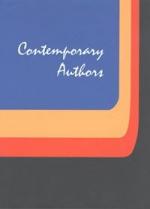|
This section contains 1,937 words (approx. 7 pages at 300 words per page) |

|
SOURCE: A review of The Ideology of the Aesthetic, in Journal of Aesthetics and Art Criticism, Vol. 49, No. 3, Summer, 1991, pp. 259-61.
In the following review of The Ideology of the Aesthetic, Schusterman praises Eagleton's insight and rhetorical turns, though finds shortcomings in the book's omissions and contradictory assertions.
The past decade of Anglo-American intellectual history has witnessed literary theory's undeniable emergence as the most influential, ambitious, and institutionally powerful genre of theoretical discourse in the humanities. The fact that it now prefers to call itself simply “theory,” as if to encompass and exhaust the entire theoretical realm, is testimony to its ambition. But it also testifies, I believe, to a covert but nagging discomfort with its narrowly literary past, its institutional provenance in the Anglo-American world as a theoretical practice based in departments of English and foreign literature, dominated (if not originally formulated) by “language teachers” rather than...
|
This section contains 1,937 words (approx. 7 pages at 300 words per page) |

|


